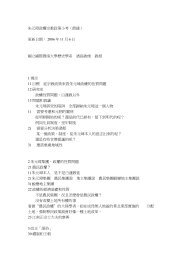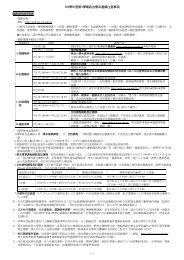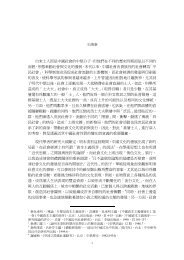台灣半總統制下「少數政府」的存續:2000~2004 - 東吳大學
台灣半總統制下「少數政府」的存續:2000~2004 - 東吳大學
台灣半總統制下「少數政府」的存續:2000~2004 - 東吳大學
- No tags were found...
You also want an ePaper? Increase the reach of your titles
YUMPU automatically turns print PDFs into web optimized ePapers that Google loves.
64 東 吳 政 治 學 報 /2007/ 第 二 十 五 卷 第 四 期The Survival of Minority Governments underSemi-Presidentialism: Taiwan, 2000~2004Hong-ming Chen *The minority government has existed since 2000 under Taiwan’ssemi-presidential system. How was it able to form and survive successfullywithout real challenges from the opposition parties? Does it mean that thePresident Chen Shui-bian and the DPP government have actually gained control ofthe majority of seats in the Legislative Yuan by winning the support of themajority of the legislators? These questions are by no means new ones. However,we still lack an adequate understanding of them. This paper, based on a theoreticalframework of semi-presidentialism, uses qualitative data, including in-depthinterviews, and explores the experience of Taiwan’s minority governments from2000 to 2004. Looking at the topic from a new institutionalist perspective, theauthor analyzes the different political actors’ goals and strategic choicesconcerning the rules of government formation and survival under the ROC’sconstitutional structure. The study shows that both institutional and behavioralfactors should be included simultaneously in order to answer the researchquestions. Namely, the political actions of the president and the opposition partiesare the main focus of the study, except for constitutional design. In addition, thestudy discusses historical context and analyzes the strengths of political actors andthe relationships among them at different times.Key words: semi-presidentialism, minority government, divided government,new institutionalism, vote of no confidence* Assistant Professor, Center for General Education, Chung Yuan Christian University.
















